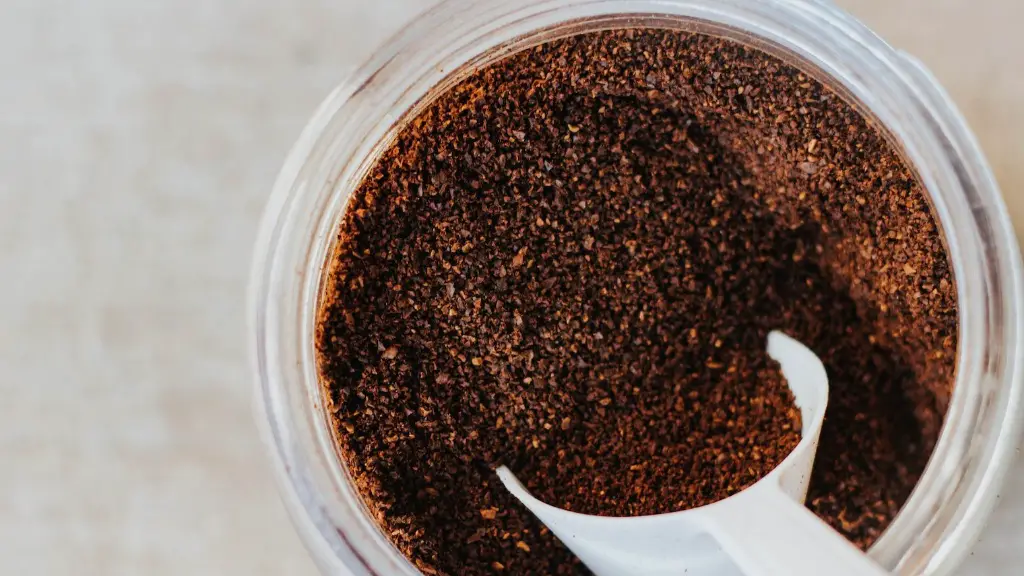The consumption of caffeinated drinks, including coffee, is commonplace among adults. But the benefits of such drinks are often a source of debate, particularly when the topic of health is concerned. For those suffering from constipation, the argument regarding whether or not drinking coffee may help often arises. To answer definitively if coffee can help with constipation, it is best to consider the following points.
To begin, one should start with the basics – what is constipation? In simple terms, constipation refers to difficulty or difficulty in passing stools from the rectum. The causes are varied and could include lack of dietary fibre, poor fluids intake and lack of physical exercise. There may also be underlying medical conditions at play.
How Does Caffeine Affect Constipation?
Caffeine, found in coffee and many other beverages, is considered a stimulant. It is the effects of caffeine on the body that brings the debate as to whether or not it can help with constipation. Studies have indicated that while a lower dose of caffeine may actually improve transit time, a higher dose may actually result in constipation.
In short, the effectiveness of caffeine in relieving constipation may vary on an individual basis. While caffeine has been known to act as a laxative, there may in fact be counter-indication effects. It would be best to consult with a medical professional to identify if caffeine may assist each specific person with constipation.
What are the Other Benefits of Caffeine?
Aside from any potential assistance in dealing with constipation, if one is able to drink coffee in moderation, there may also be other benefits to its consumption. Studies have suggested that moderate consumption of coffee, three to four cups per day, may contribute to reducing the risk of cardiovascular diseases, type 2 diabetes and Parkinson’s.
Caffeine also has other effects on the body. These include increased alertness, improved concentration and a decreased reaction time. More importantly, it can help in decreasing stress and even improving mood. Therefore, while consuming coffee to potentially help with constipation must be evaluated on an individual basis, its potential effects on improving general health should be considered as well.
Other Beverages That May Help with Constipation
If one decides that caffeine does not agree with them and does not help with constipation, there are other beverages that may be beneficial for relieving constipation. Drinking warm liquids like herbal tea, either in the mornings or throughout the day, can help improve regularity of one’s movements without the intake of caffeine. Furthermore, incorporating juices and smoothies can help to suplement the intake of essential nutrients and vitamins while simultaneously providing fibre, thus negating the symptoms of constipation.
In any case, the correct daily intake of fluids and having a balanced diet remain essential for the prevention of constipation. Therefore, even if one chooses to drink coffee to help with constipation, all other considerations should be taken into account to ensure that constipation is treated correctly.
Possible Side Effects of Caffeine
Drinking too much caffeine can cause health issues. It is a diuretic, meaning it can dispose of water from the body and should not be taken too often. Caffeine can also cause an increase in heart rate and may cause insomnia if taken late at night. Poor digestion and acid reflux are also possible side effects that can occur from overconsumption of caffeine. Therefore, it is important to ensure that any coffee consumption is in moderation and that an individual thinks carefully before using it as a laxative to help with constipation.
How to Make Coffee that Helps with Constipation
If one is going to drink coffee as a means to help relieve constipation, it is best to experiment with different brewing methods. For instance, cold-brewed coffee often produces less caffeine, though this may not be the ideal focal point when trying to relieve constipation. Boiled and steeped coffees, however, often possess different caffeine levels that can assist one in finding an appropriate dosage that could help with constipation.
Moreover, one should be aware of the type of coffee being consumed. For example, decaffeinated coffees contain almost no caffeine and prompt little to no effects when consumed. Therefore, when choosing a coffee that may assist with constipation, one should go for those richer in caffeine – this includes espresso and dark roast coffees.
Nutritional Supplements and Probiotics
In addition to the potential assistance that coffee can provide for those dealing with constipation, there are other dietary and lifestyle measures that can be taken. For instance, nutritional supplements and probiotics may help. Many nutritional supplements contain a range of minerals and vitamins, many of which can help in dealing with constipation. Probiotics, which are available in yoghurt and other dairy products, contain active cultures that help in digestion. As such, these can be very useful in dealing with constipation.
Modification of Diet and Lifestyle
Preventing constipation can also be achieved by making changes to diet and lifestyle. The most important of these is to increase fibre and fluid intake. Eating more fruits and vegetables in a day, and selecting whole wheat rather than processed starches can be beneficial. Furthermore, increased physical activity and exercise can help in digestion. Studies have suggested that adults should aim to exercise for at least 30 minutes a day in order to improve frequency of bowel movements and to reduce constipation.
Sufficient Sleep and Stress Management
In addition to diet and lifestyle, one must think of their sleep routine as well. Lack of sufficient sleep can not only lead to fatigue but can also interfere with normal functioning of organs, which in turn may lead to issues with digestion. Stress management is also important. Elevated levels of stress can cause physical symptoms including constipation and increasing these levels can lead to difficulty in digestion. Consequently, it is beneficial for an individual to stay on top of stress levels.
Conclusion
The consumption of coffee to help with constipation must be done with consideration. An individual should consider the possible effects that coffee may have, both in relation to general health and the effects it may have on constipation. In any case, coffee is by no means a definitive solution and should be understood that it may or may not fit an individual’s needs. In any case, lifestyle changes, regular exercise and stress management may all help in alleviating constipation.



